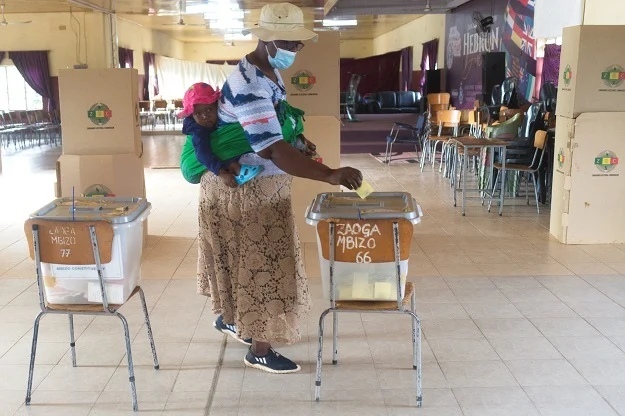
ZIMBABWE was gripped by election fever over the past few weeks as the main political parties, Zanu PF and the new kid on the block, Citizens Coalition for Change (CCC), embarked on poll campaigns to win the hearts of potential voters in 28 parliamentary constituencies and 122 council wards.
Voters cast ballots last week on Saturday in the by-elections seen as a yardstick of what is to come in next year’s general polls. Sixteen parties took part in the elections. CCC won 19 and Zanu PF nine of the National Assembly seats.
The main political parties, led by President Emmerson Mnangagwa and Nelson Chamisa, pulled huge crowds at rallies across the country. Now that the elections are over and the country’s political parties are starting to prepare in earnest for the make or break 2023 plebiscite, where voters choose three candidates — councillors, legislators and the President — it is time for them to reflect and introspect.
To quote former cabinet minister, Professor Jonathan Moyo: “Instead of messaging to mobilise, educate and energise voters in 28 constituencies and 122 wards; the by-elections messaging became a referendum on which party leader could draw the largest rally crowds; as the leaders made the campaign about themselves and 2023. Crowds don’t vote!”

The by-elections did not live up to the hype. They were characterised by voter apathy. According to the Zimbabwe Electoral Commission, the voter turnout for National Assembly vacancies by-election was 35%. Youth voters were particularly absent.
The issue of voter apathy has characterised elections in Zimbabwe, mostly by-elections. This points to the need for extensive voter education campaigns to mobile the electorate to vote in the 2023 elections. The elections exposed that voters do not know basic things like driver’s licences are not valid forms of identification for voting. The key take-away is that Zec, political parties and civil society organisations have to do a lot more ahead of the elections beckoning in 15 months to embark on a massive voter education drive. In addition, political parties need to get the electorate excited enough to want to participate in the 2023 elections. Political leaders have to re-energise their supporters and generate a lot of hype among potential voters.
The campaigns and messaging should be packaged in a manner that draws the youths, given that Zec statistics show that 60% of the plus 5,5 million registered voters are aged between 18 and 40. Successful candidates in the three polls must persuade voters that they deserve their individual votes. The electorate expects concrete and realistic propositions from the political leaders, especially towards improving livelihoods. Critical issues that they need to address include the provision of decent jobs, affordable healthcare, as well as education. People do not want to hear fairy tales.
Zimbabweans are tired of ancient politicking, characterised by rhetoric. As we enter 15 months of extensive electioneering, political parties must be reminded that the electorate yearn for politicians who address matters concerning how government intends to rejuvenate the state of the economy and infrastructural development.
- Chamisa under fire over US$120K donation
- Mavhunga puts DeMbare into Chibuku quarterfinals
- Pension funds bet on Cabora Bassa oilfields
- Councils defy govt fire tender directive
Keep Reading
To lure potential voters to the ballot boxes, politicians should articulate key policy issues so that they become electable. Failing to do so will only result in another low voter turnout in 2023.
The by-elections have also shown that the government needs to expeditiously implement electoral reforms, as these contribute to a more credible electoral process. The country cannot afford another disputed election.
The by-elections exposed key aspects of the election process that need to be addressed.
These include cleaning the voters roll, electoral and media reforms to level the political playing field.
“There should be equal enjoyment of rights and freedoms by all electoral actors, including the freedom of expression, association, and assembly,” the Zimbabwe Election Support Network said in an opinion piece on page 15.
“Political parties’ leaders should refrain from violence, messages that incite hatred/violence and should always urge their supporters to remain peaceful and not engage in rogue behaviour.”
The police need a mind-set shift and must treat all political parties equally. There is no room for political violence and police brutality. It is retrogressive.
It is time for the opposition parties and civil society organisations to push for the desired reforms and not wait for the eleventh hour.











